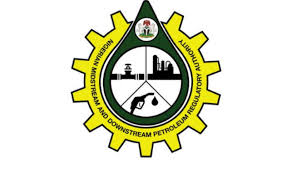The Nigerian Midstream and Downstream Petroleum Regulatory Authority (NMDPRA) has called for stronger compliance with oil and gas sector regulations, especially in midstream and downstream operations. This call was made during the General Counsel and Legal Advisers Forum for the Oil and Gas Midstream and Downstream operators held in Abuja on Monday.
The forum, themed “Advancing a Collaborative Compliance Culture in Nigeria’s Midstream and Downstream Petroleum Sectors,” gathered key industry stakeholders to discuss ways to enhance regulatory adherence and promote effective operations across Nigeria’s energy value chain.
Speaking at the event, the Chief Executive Officer of NMDPRA, Engr. Farouk Ahmed, represented by the Executive Director, Distribution Systems, Storage and Retailing Infrastructure, Ogbugo Ukoha, emphasized the significant role legal practitioners play in ensuring optimal regulatory compliance within the sector. He noted that the Petroleum Industry Act (PIA) 2021 has restructured the petroleum sector by clearly separating upstream from midstream and downstream operations, with specific licensing and regulatory requirements.
Ahmed reminded participants that all operations in the midstream and downstream petroleum sector must operate under valid licenses, permits, and authorizations issued by the Authority. He disclosed that NMDPRA is streamlining gazetted regulations to simplify compliance, eliminate overlapping rules, and encourage ease of doing business within the sector.
He said, “The role of legal practitioners is critical across the midstream and downstream energy business value chain in promoting compliance with all operational standards and regulations in Nigeria’s complex and volatile market environment.”
Ahmed further stated that regulatory compliance should not be treated as a reactive obligation or viewed solely as a business risk. Instead, companies are urged to embed compliance into their core business philosophy, ensuring that sustainability and responsible operations remain central to their activities.
He also assured stakeholders of NMDPRA’s continued collaboration to foster investor confidence, sustainability, and ease of doing business in Nigeria’s oil and gas sector.
In his address, the Deputy Speaker of the House of Representatives, Rt. Hon. Benjamin Okezie Kalu, represented by Hon. Ikenga Ugochinyere, Chairman of the House Committee on Petroleum Resources (Downstream), said the PIA has delivered substantial benefits within two years of its enactment. He revealed that Nigeria recorded over $16 billion in investment commitments since the law was passed, representing a sharp increase from just $55 million in 2020.
Kalu said, “Our oil production in December 2024 reached 1.69 million barrels per day, the highest in 44 months. Nigeria emerged as the leading destination for oil and gas investments in Africa in 2024, accounting for three out of four Final Investment Decisions announced by global oil majors.”
He added that this achievement is a direct result of the investor-friendly provisions of the PIA, which has helped Nigeria recover from years of declining production.
Also speaking, the Secretary and Legal Adviser of NMDPRA, Dr. Joseph Tolorunse, urged legal advisers in the sector to familiarize themselves with the license regime under the PIA, noting that there are over 17 types of licenses within the midstream and downstream sectors. He advised that legal teams should incorporate alternative dispute resolution mechanisms in their contracts and internal processes to foster peaceful conflict management.
Tolorunse stressed that legal advisers should play a proactive role in ensuring regulatory compliance by closely monitoring developments, participating in industry consultations, and supporting government policies and advocacy efforts.
The forum, which featured presentations from regulators, lawmakers, and legal experts, emphasized that sustained collaboration among all stakeholders is essential for maintaining stability, growth, and regulatory compliance in Nigeria’s midstream and downstream petroleum sectors.
